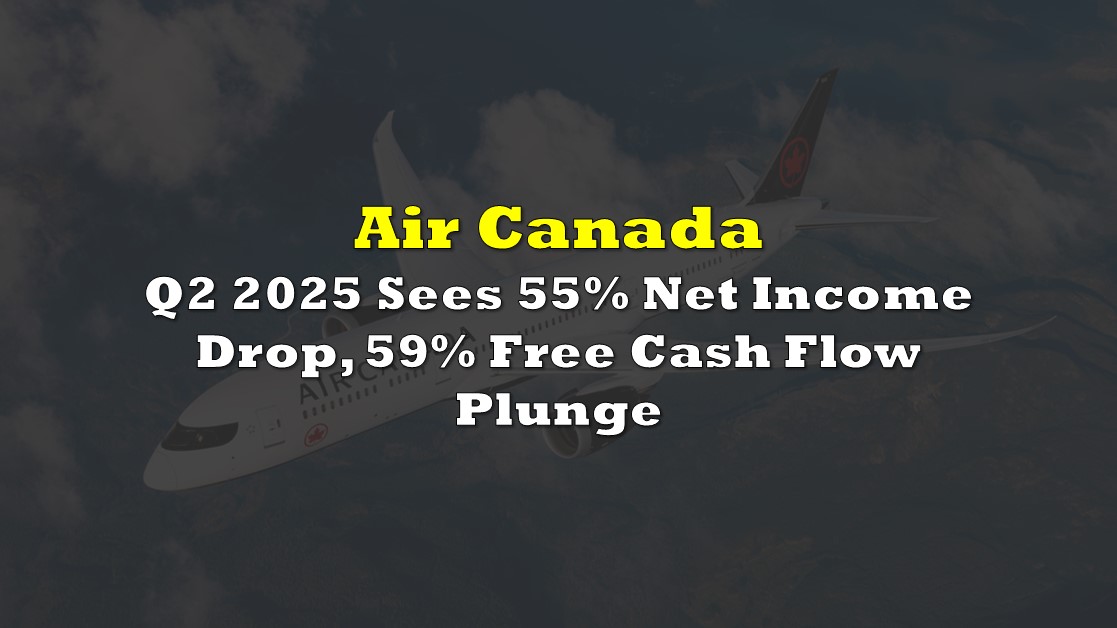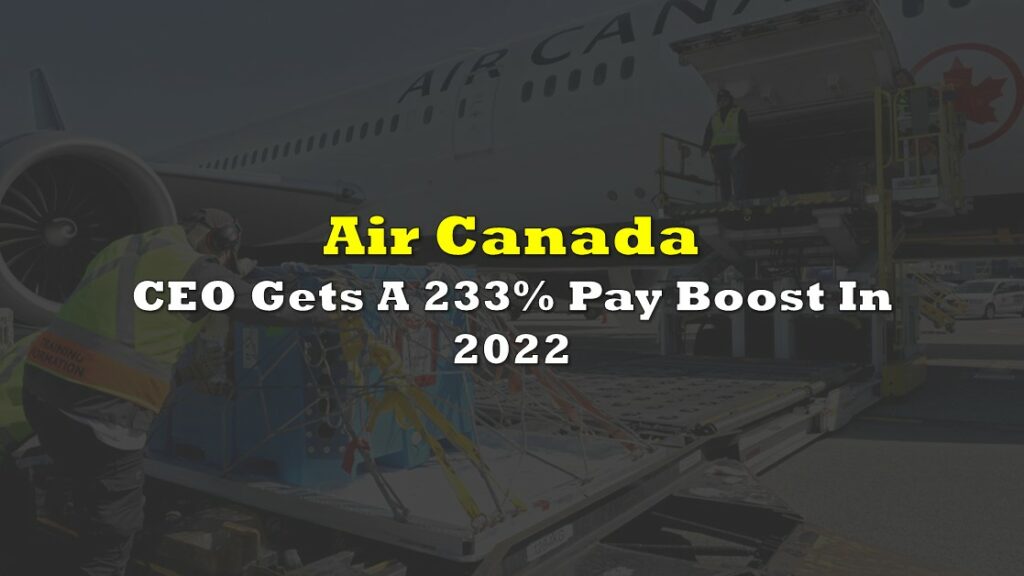Air Canada (TSX: AC) reported mixed financial results for Q2 2025, posting modest revenue growth of 2% with total operating revenues of $5.63 billion from $5.52 billion in Q2 2024, but beating the consensus of $5.54 billion.
Despite higher revenues, operating expenses also saw a jump to $5.21 billion from last year’s $5.05 billion. Operating income then dropped 10.3% to $418 million from last year’s $466 million, compressing the operating margin from 8.4% to 7.4%.
Net income sharply declined by 55% YoY, coming in at $186 million, or $0.51 per diluted share, down significantly from $410 million, or $1.04 per diluted share, reported in Q2 2024. Adjusted net income also dropped 44% to $207 million from $369 million, with adjusted earnings per diluted share declining to $0.60 from $0.98.
Adjusted EBITDA slipped slightly to $909 million from $914 million, failing to beat the consensus at $927 million and narrowing the margin to 16.1% from 16.6%.
$AC Air Canada pic.twitter.com/BzQf1Ms4NL
— Vancouver Island Guy 🌊 (@VanIsleInvestor) July 29, 2025
Cost pressures were evident, as adjusted Cost per Available Seat Mile increased 6.4% year-over-year to 14.4 cents, up from 13.5 cents, primarily due to rising operational and personnel expenses.
The firm also recorded lower operating cash flow at $895 million from $924 million a year ago. Free cash flow notably fell to $183 million from $451 million in the previous year, reflecting heightened capital expenditures that surged 51% to $712 million from $473 million.
Total liquidity declined by nearly $1.84 billion to $8.36 billion, while net debt increased substantially to $4.76 billion from $3.61 billion YoY.
Operationally, Air Canada slightly boosted Available Seat Miles by 2.5% to 26.86 billion. However, the passenger load factor marginally declined to 84.9%, indicating potentially softer passenger demand relative to capacity expansion.
CEO Michael Rousseau said the company “strategically redirected capacity to high-demand markets and captured demand for premium services,” but admitted challenges posed by “macroeconomic uncertainty and geopolitical tensions.”
Looking forward, Air Canada reiterated its full-year guidance of adjusted EBITDA between $3.2 billion to $3.6 billion, with ASM capacity increasing 1%-3%.
Air Canada last traded at $22.04 at the TSX.
Information for this briefing was found via the sources and the companies mentioned. The author has no securities or affiliations related to this organization. Not a recommendation to buy or sell. Always do additional research and consult a professional before purchasing a security. The author holds no licenses.









